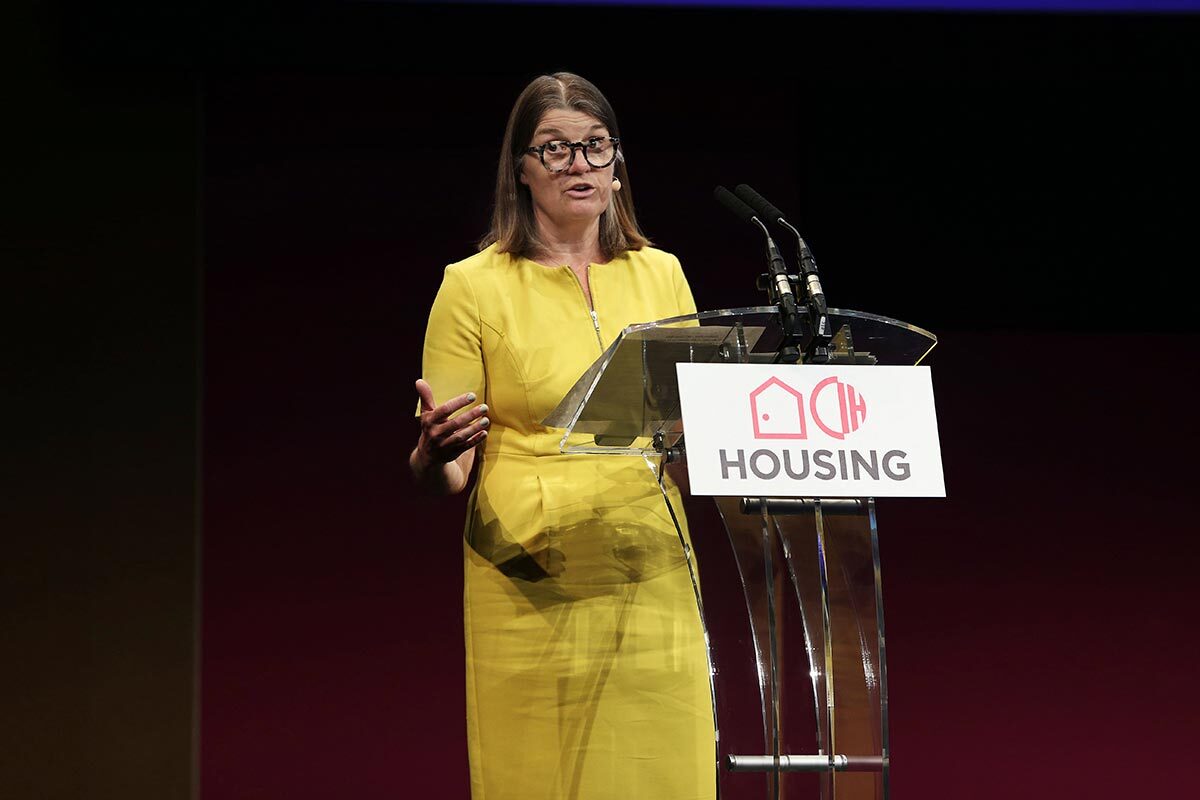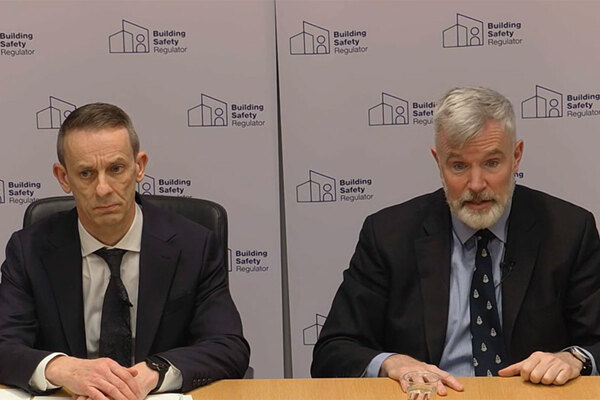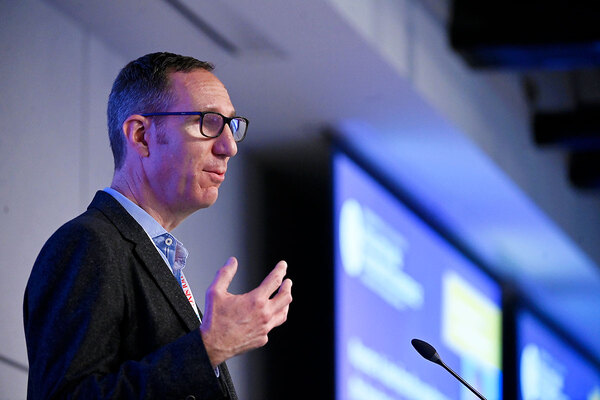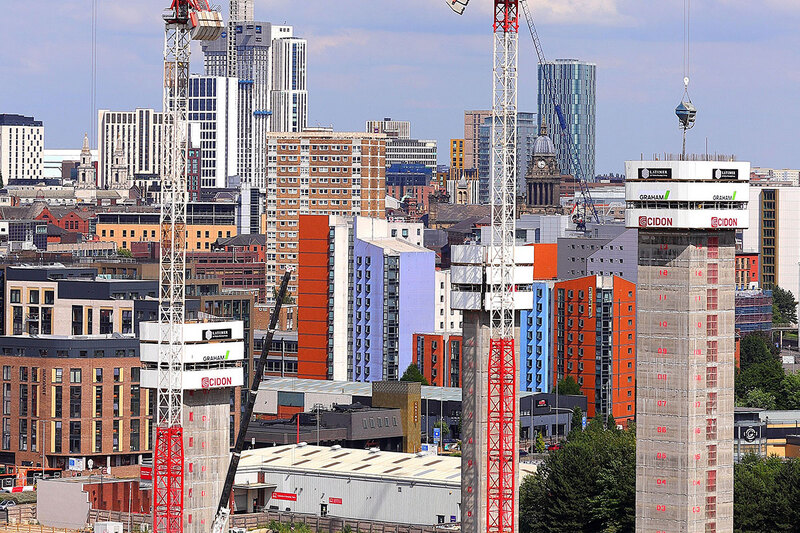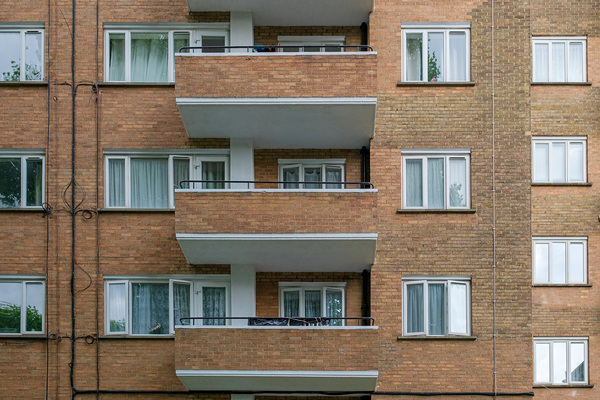You are viewing 1 of your 1 free articles
Housing minister ‘does not recognise’ figures showing fall in social rent housing since 2010
Housing minister Rachel Maclean has claimed that she “does not recognise” official data showing falling numbers of social rent homes being built, as she sought to justify her claim that the government has built “record” numbers of social homes.

In a testy interview, following her speech to the Housing 2023 conference in Manchester last week, she also refused to accept that the sharp rise in households in temporary accommodation since 2010 represented a failure in housing policy terms, saying the issue was “not in my brief”.
She had previously talked up her party’s track record on social housing, saying: “We’ve got record numbers of social rent homes that have been built.”
The number of new social rent homes being built has in fact fallen from 39,562 a year in 2010 to 7,644 last year.
Asked to explain, she said: “That’s not a figure that I recognise. The figure that I recognise is the figures that I had in my speech. I’m going to look at my notes, because we have delivered 250,000 homes through the Affordable Homes Programme, backed by significant numbers of government support.”
She added: “We’ve delivered more social rented homes in this government than under the last Labour government.”
This claim is not supported by official government data, which shows 161,577 social rent homes completed since 2010, compared to 362,912 between 1997 and 2010.
This is because the coalition and Conservative governments since 2010 have used the vast majority of affordable housing grant to fund homes for shared ownership or higher ‘affordable’ rents.
Most of the 161,577 social rent homes completed during their time in office occurred in the early years, due to the completion of homes started under legacy Labour government programmes.
Since 2015, England has averaged less than 7,000 new socially rented homes per year, compared to an average of 27,916 under the Labour governments since 1997.
This results from a decision taken in 2010 by then-chancellor George Osborne to cut affordable housing grant rates by 60%.
This meant that while the government could continue to fund a similar overall volume of affordable housing to its Labour predecessor, the rents ultimately charged to tenants would be much higher to cover the cuts.
As a result, since 2010, there have been more affordable homes of all tenures completed (621,421) than the corresponding figure between 1997 and 2010 (557,217), but just 26% have been for social rent, compared to 65% under Labour (see graph below).
Despite Ms Maclean’s claim to have obtained a ’record’ figure, both the New Labour government and the Conservative governments since 2010 have delivered some of the lowest figures since World War II with regard to the construction of social rent housing.
In the 1950s, 1960s and 1970s both parties regularly oversaw the construction of more than 100,000 council homes a year.
Ms Maclean’s claim may have related to figures released shortly before her speech, which showed more than 54,000 affordable homes of all tenures were started through government programmes in England in 2022/23.
This was badged as a ’record’ by a government press release because it was the highest figure in a specific dataset which only dates back to 2009.
But just 6,830 of these 54,000 homes were for social rent (11.8%) - far below the 39,492 social rented homes which were started in 2009.
Asked why more funding had not been allocated to social rented homes during the Conservatives’ years in power, Ms Maclean said: “So you are aware, of course, that every home that’s built that is not a market home has to be funded by government grants.
“As [CIH president] Lara [Oyedele] said, every single home that’s built for below market price is covered by government subsidy, by taxpayers’ money. So there always has to be choices about where does taxpayers’ money go.”
Inside Housing also asked Ms Maclean about the rising number of households in temporary accommodation – a figure that has more than doubled since 2010 from 50,000 to 101,300.
Asked if the figure represented a housing policy “failure”, she said: “I’m the housing minister. This is not in my portfolio, OK? That’s dealt with by my colleague Felicity [Buchan], who is the homelessness minister. So you’re asking me questions that are not in my brief. So I would rather stick to the questions that are in my brief.”
When asked what housing associations should prioritise without additional funding from government, and facing pressure to build, retrofit stock and meet building safety and historic disrepair costs, Ms Maclean replied: “It’s up to them.”
When asked about funding for social housing providers on stage, she had said: “Everybody wants more money.”
Ahead of the next general election, the National Housing Federation has argued for the party that forms the next government to commit to a long-term housing strategy based on tangible outcomes.
Asked if the government would commit to such a strategy, the minister said: “I don’t know what they mean by that. Genuinely. What do they actually mean?
“The Affordable Homes Programme works in five-year cycles already… that’s already quite a good length of time, I think, to plan. It’s a longer time horizon than many industries get.”
In the interview, Ms Maclean said that three of her children are private renters. While none of them have personally faced a Section 21 eviction, she said, “they know a lot of their friends” who have, “so it’s something that’s within my personal circle”.
The government is seeking to ban Section 21 evictions under its Renters’ Reform Bill currently going through parliament.
Sign up for our daily newsletter
Already have an account? Click here to manage your newsletters
Related stories
